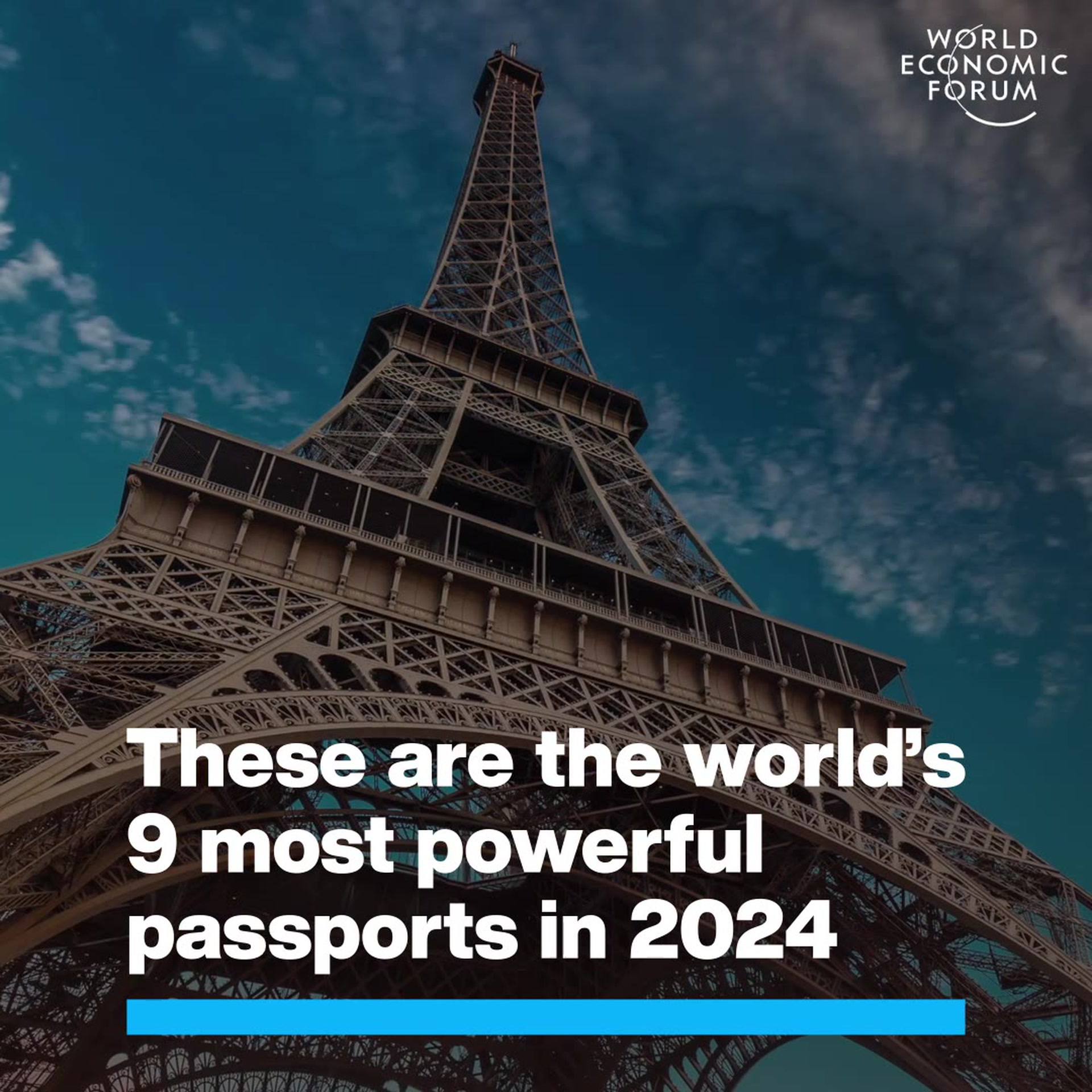These are the world's most congested cities

Los Angeles is the most congested city in the world, five of the top ten are in the U.S. Image: REUTERS

Get involved with our crowdsourced digital platform to deliver impact at scale
Stay up to date:
Travel and Tourism
Five of the top 10 most congested cities in the world are located in the United States, according to a global traffic scorecard published annually by Inrix, a company that aggregates and analyzes traffic data collected from vehicles and highway infrastructure.
Los Angeles is the most congested city in the world, followed by New York City and Moscow, which are tied for the second place spot. San Francisco is the fifth most congested. Atlanta and Miami also make the top 10 list.
The scorecard is based on an analysis of 1,360 cities. The congestion data provides insight into each city's unique set of transportation problems and how they might be solved (or made worse) with technology and new forms of transporatation such as ride-hailing, car-sharing, and eventually self-driving vehicles. It also shows what the transportation headaches are costing drivers and the city (meaning taxpayers) that must pay for road improvements and infrastructure maintenance.
Angelenos spent an average of 102 hours last year in traffic jams during peak congestion hours, costing drivers $2,828 each and the city $19.2 billion from direct and indirect costs. Direct costs relate to the value of fuel and time wasted, and indirect costs refer to freight and business fees from company vehicles idling in traffic. Those fees are then passed on to households through higher prices, according to Inrix.

The top 10 most congested cities in the world are:
1. Los Angeles
2. New York City (tie)
2. Moscow (tie)
4. Sao Paulo, Brazil
5. San Francisco
6. Bogotá
7. London
8. Atlanta
9. Paris
10. Miami
The top 10 most congested cities in the U.S. are:
1. Los Angeles
2. New York City
3. San Francisco
4. Atlanta
5. Miami
6. Washington, D.C.
7. Boston
8. Chicago
9. Seattle
10. Dallas
Eight of the top 10 most congested cities in the U.S. also happen to be on Amazon's top 20 list of cities under consideration for the location of its second future headquarters, dubbed HQ2.
Based on the findings, the U.S. ranked as the most congested developed country in the world, with drivers spending an average of 41 hours a year in traffic during peak hours, which cost drivers nearly $305 billion in 2017, an average of $1,445 per person.
Overall, the U.S. is in fifth place (and tied with Russia) as the most congested country, with drivers spending 41 peak hours commuting. The most congested country in the world is Thailand, with drivers spending an average of 56 hours in peak-hour congestion.
The top 10 most congested countries are:
1. Thailand
2. Indonesia
3. Colombia
4. Venezuela
5. United States (tie)
5. Russia (tie)
7. Brazil (tie)
7. South Africa (tie)
9.Turkey
10. United Kingdom
The analysis revealed that not all cities have the same kind of congestion. Both New York and San Francisco have similar average congestion rate as Los Angeles, but show different commute patterns. San Francisco, for example, had the highest congestion rate (tied with Boston) on arterial and city streets during the peak commute hours, while New York holds the top spot during the daytime.
Don't miss any update on this topic
Create a free account and access your personalized content collection with our latest publications and analyses.
License and Republishing
World Economic Forum articles may be republished in accordance with the Creative Commons Attribution-NonCommercial-NoDerivatives 4.0 International Public License, and in accordance with our Terms of Use.
The views expressed in this article are those of the author alone and not the World Economic Forum.
The Agenda Weekly
A weekly update of the most important issues driving the global agenda
You can unsubscribe at any time using the link in our emails. For more details, review our privacy policy.
More on Travel and TourismSee all
Naoko Tochibayashi and Naoko Kutty
March 28, 2024
Abeer Al Akel and Maimunah Mohd Sharif
February 15, 2024
Priya Singh
February 8, 2024
Thea de Gallier
January 31, 2024






